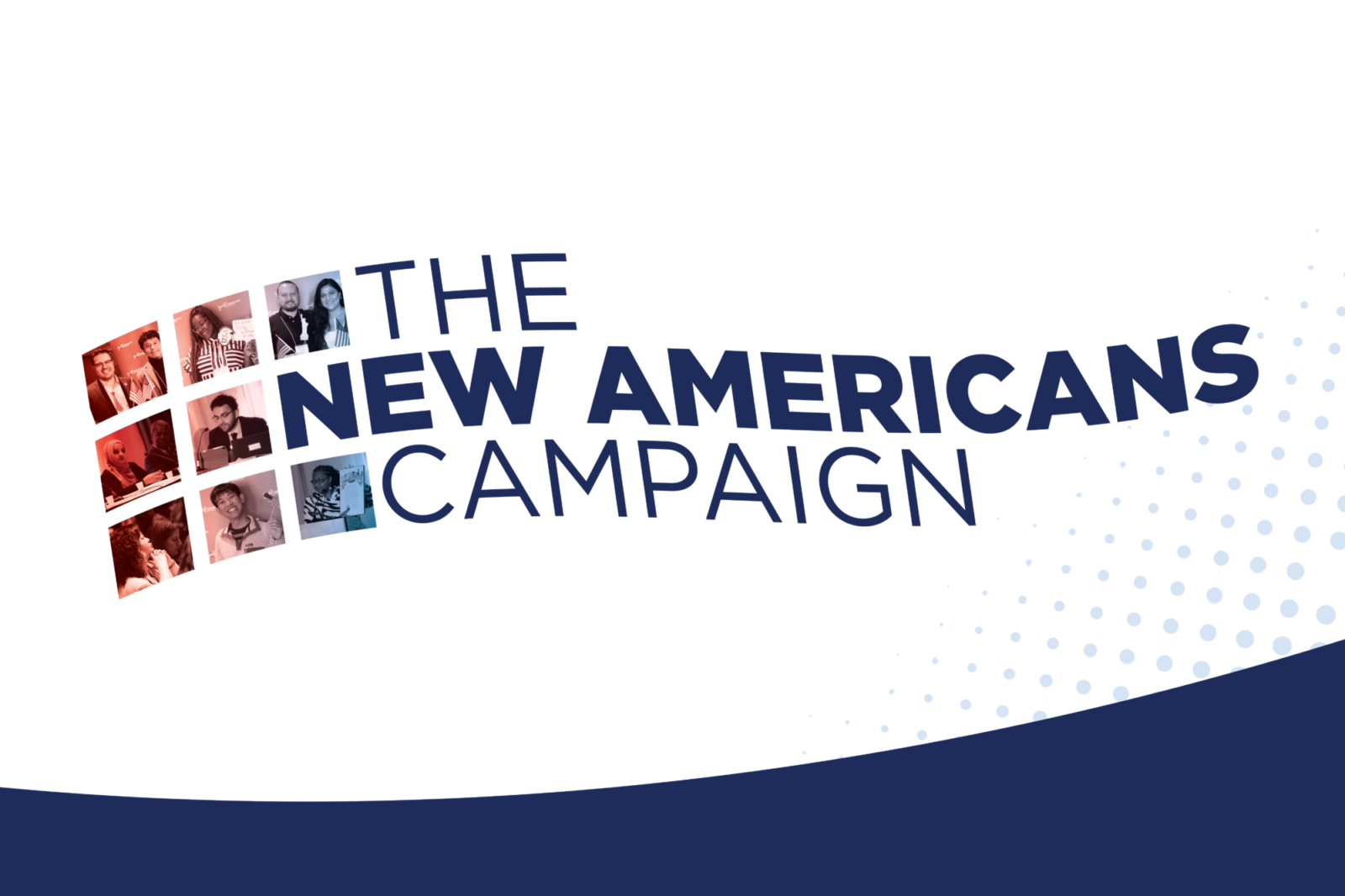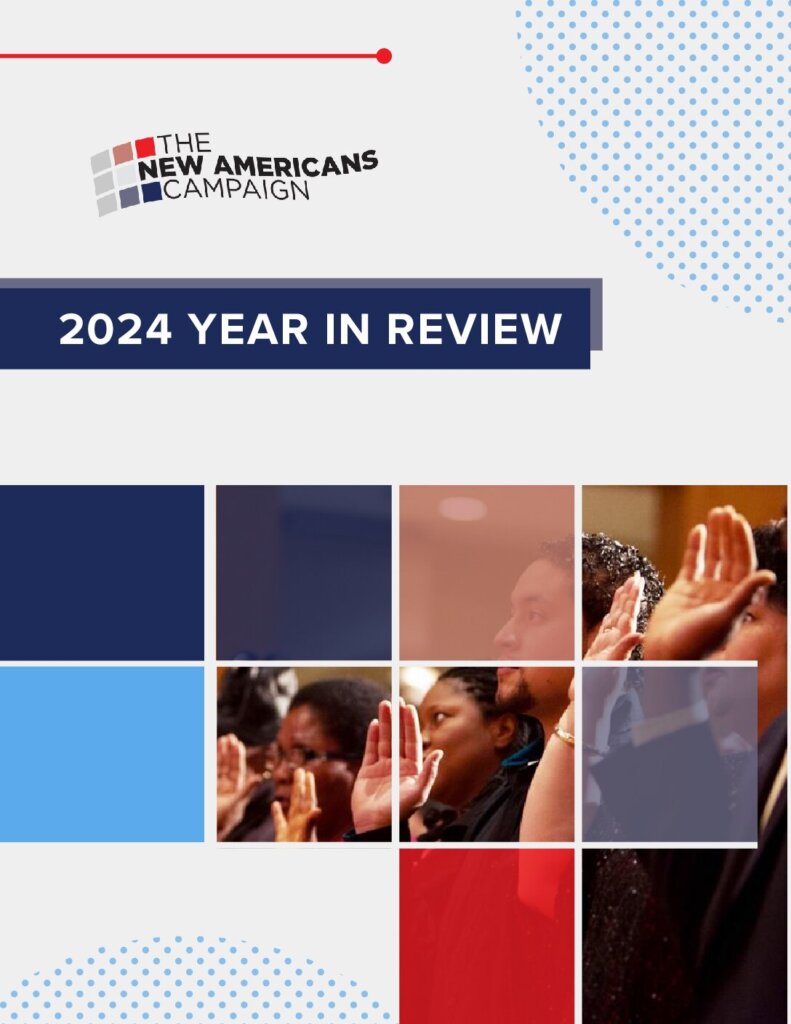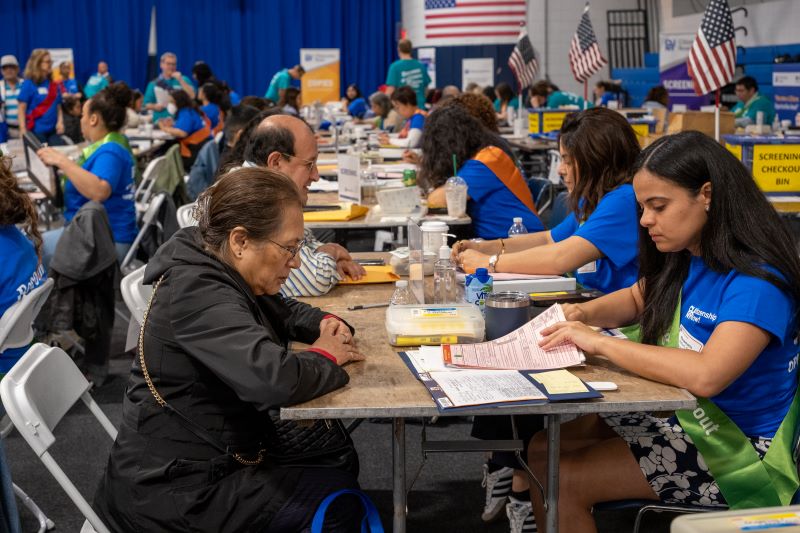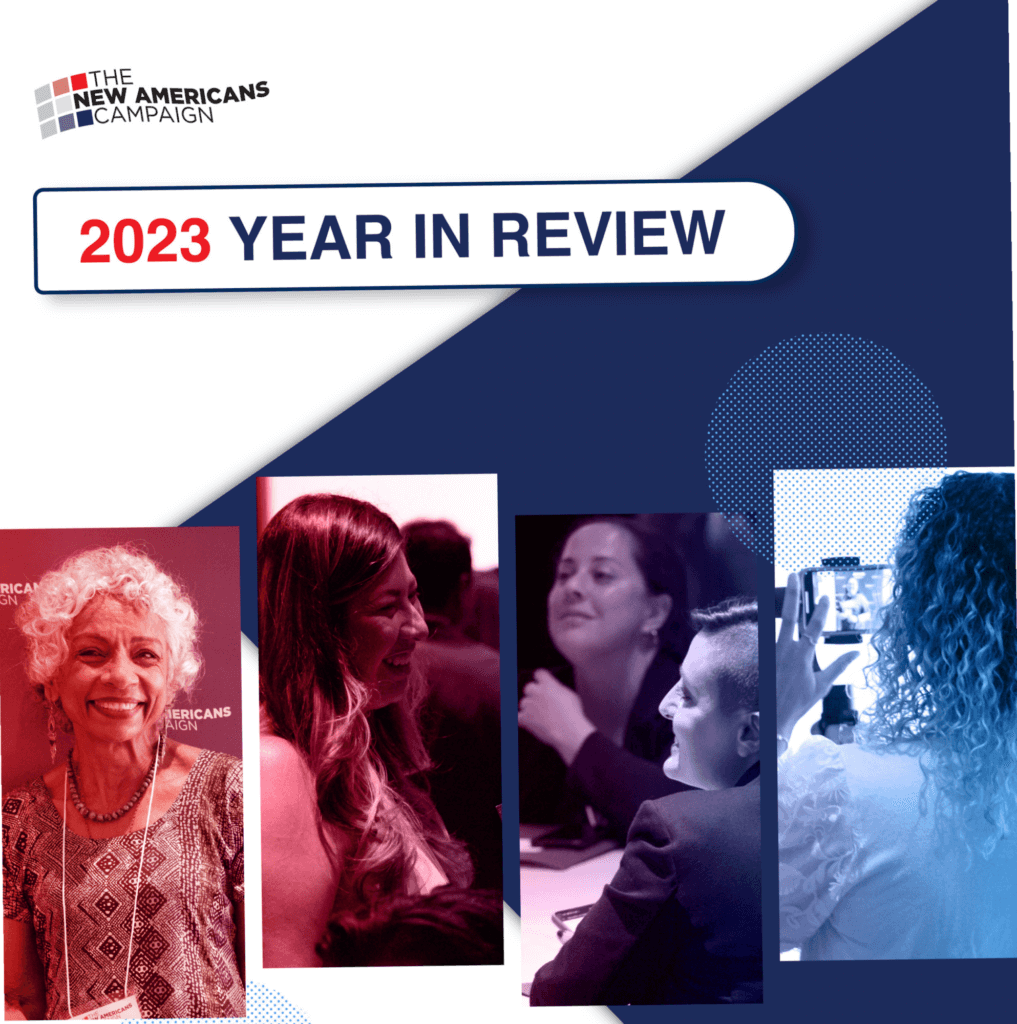A new survey on changing naturalization procedures finds the road to U.S. citizenship is rockier than ever

Explore more
The Migration Policy Institute (MPI) released a new report in July, A Rockier Road to U.S. Citizenship? Findings of a Survey on Changing Naturalization Procedures, that sheds light on a disturbing trend observed by many naturalization service providers since the beginning of the Trump administration—it’s becoming more difficult, more time intensive, and more burdensome to apply for U.S. citizenship. The stack of paperwork required by the United States Citizenship and Immigration Services (USCIS) is bigger, the wait times are longer, backlogs loom larger, and interviews have more than doubled in length.
The initial investigation was launched by the Immigrant Legal Resource Center (ILRC). In over 30 years of practice as an attorney, Eric Cohen, ILRC Executive Director, had never seen such hurdles. “We witnessed the ballooning backlog, the super vetting processes and significantly longer interviews,” said Cohen, “We wanted to find out from our partners across the country what they were seeing on the ground. Was this a pattern and a practice? Or was it just a few random observations?”
The ILRC leads the New Americans Campaign (NAC), a collaborative of 200 naturalization service providers that have collectively helped almost half a million individuals complete the application process and become U.S. citizens. To understand how USCIS naturalization procedures are changing, last year the NAC’s Sarah Letson, Senior Manager of Innovation & Learning, surveyed 110 naturalization service providers about experiences over the prior two years in 34 metro areas. This cross section of NAC partners works with 52 of the country’s 87 USCIS field offices.
The ILRC
asked Randy Capps and Carlos Echeverría-Estrada of the Migration Policy
Institute (MPI) to analyze the data and write the report. Capps and
Echeverría-Estrada found that the transformation of the USCIS from a benefits
agency concerned with customer service to an enforcement agency focused on
intensive vetting and fraud detection was taking a serious toll. At a number of
steps in the naturalization process USCIS adjudicators have become increasingly
strict, applying more scrutiny during interviews, tests, evidence requests, and
assessments. Specific findings from the survey include:
- Interviews had doubled
in length, from 20–30 minutes to 45–60 minutes, according to one-quarter of
respondents. - More than one-third reported
USCIS more often issued requests for evidence to support applications,
especially for documents related to tax compliance and income, continuous
residency and physical presence, marriage and child support, and criminal
history. - USCIS officers asked
detailed questions not directly related to citizenship eligibility, and
administered the English and civics tests differently, often more strictly,
according to 10 percent of respondents.
The
intensified focus on fraud detection comes despite a noticeable lack of actual
fraud. The authors conclude that the increasingly strict adjudication is not
only delaying applications, it may also be deterring would-be applicants. This
in turn depresses revenue from applications. It also leads to greater
inefficiencies at a time when the impact of the coronavirus pandemic demands
expeditious processing to reduce the expanding backlog.
Read the report: A Rockier Road to U.S. Citizenship?
Watch a webinar about the report findings featuring MPI author Randy Capps, ILRC Executive Director Eric Cohen, former USCIS Director Leon Rodriguez, and former Immigration and Naturalization Service (INS) Commissioner Doris Meissner. The discussion also examines the combined effects of the COVID-19 shutdown of USCIS field offices and the possible furlough of two-thirds of the USCIS staff on the naturalization process.



